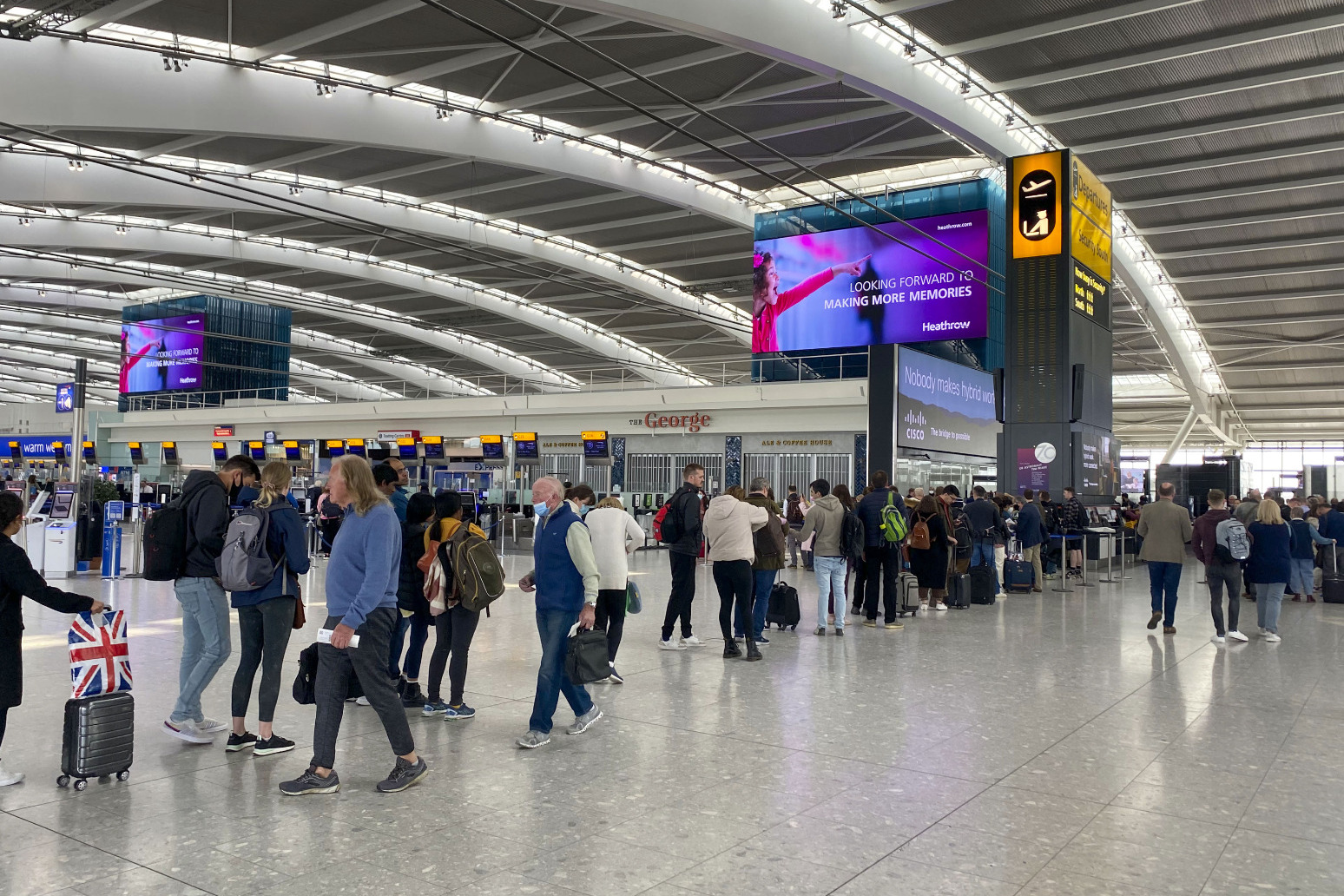
They have reported underlying pre-tax losses of £684 million for 2022
Heathrow Airport narrowed its losses sharply in 2022 amid a bounce back in travel demand, but said results were weighed on by surging cost pressures and lower passenger numbers.
The group reported underlying pre-tax losses of £684 million for last year, against losses of £1.3 billion in 2021.
It said no dividends were paid in 2022 and none are planned for 2023 as it continues to rebuild after the industry was battered by pandemic travel restrictions.
The figures also come after last summer’s major disruption for airports such as Heathrow as the aviation sector struggled to cope with staff shortages and travellers were met with sudden flight cancellations and severe delays.
But Heathrow – which is owned by Spanish group Ferrovial and investors including the Qatar Investment Authority – said passenger numbers trebled to 61.6 million, up by 42.2 million on a Covid-impacted 2021, which it claimed was the biggest increase of any major global airport.
John Holland-Kaye, the outgoing chief executive of Heathrow, said that “2022 may have been a year of recovery, but 2023 is shaping up to be a year of renewal for Heathrow”.
He added: “Our teams have already delivered a successful Christmas and half-term getaway, and with a great investment plan in place, we are determined to once again rank in the top 10 airports for service.”
Mr Holland-Kaye announced plans earlier this month to step down later this year after nine years in the role.
He will remain in post until a successor is appointed.
The group blamed inflation and lower passenger numbers for holding back progress on its bottom line, while it also hit out at “insufficient regulated charges”.
Pandemic travel curbs were only lifted widely in March last year after two years of closures, while Heathrow was also forced to impose a cap on passenger numbers due to last summer’s staff shortages.
The cap was removed at the end of October and Heathrow said it boosted its workforce to nearly 75,000 by the end of 2022 to “get capacity, service levels and resilience back to the high levels that they were before the pandemic”.
But the group is also now grappling with industrial action after UK airports were hit by severe disruption in the run-up to Christmas, with Border Force staff staging strike action in December.
And new strikes loom for the busy Easter holiday season after the Unite union said its airport worker members would vote on whether to stage industrial action in a dispute over pay, with the outcome of the ballot due on March 17.
Heathrow also took aim at Civil Aviation Authority (CAA) regulated charges in its results, branding tariff plans for the next three years as “not deliverable due to errors in the CAA’s forecasts”.
The CAA controls Heathrow’s maximum airport charge and has brought in an interim tariff until it makes a final decision on charges for the next period to the end of 2026.
Published: by Radio NewsHub

